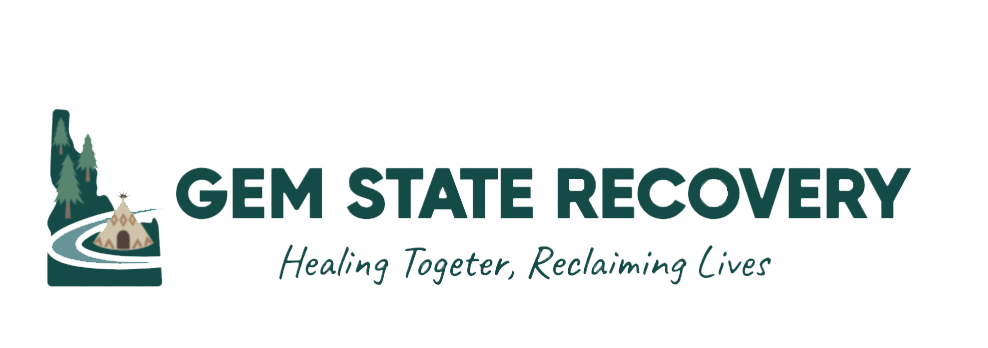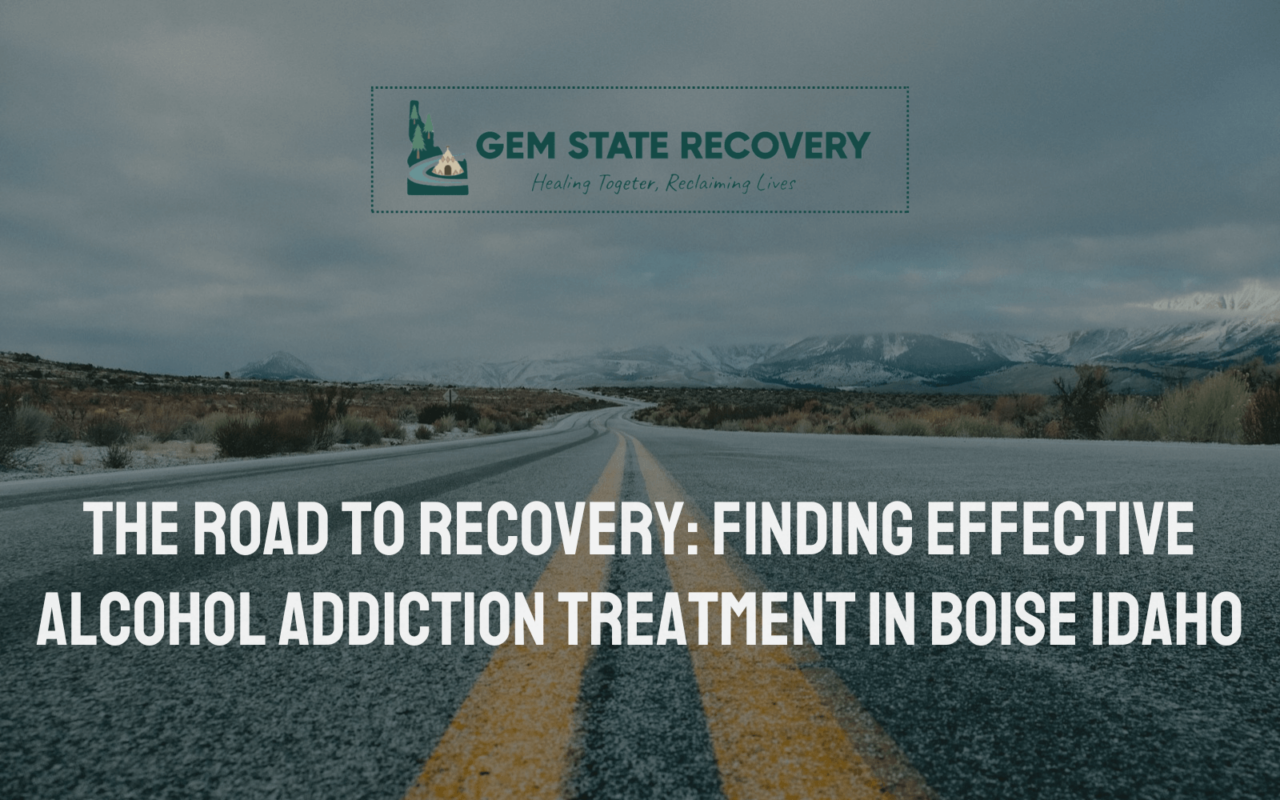Alcohol Addiction Treatment in Boise Idaho
Alcohol addiction doesn’t just impact the individual—it can ripple through their family, friends, and entire community, creating challenges that are often difficult to address alone. It’s a condition that affects not only the physical health of an individual but also their emotional well-being, relationships, and ability to thrive. For those in Boise, Idaho, a city known for its strong sense of community and abundant opportunities to build meaningful lives, alcohol addiction can cast a shadow over even the brightest futures, holding individuals back from achieving their full potential. But there’s hope—recovery is always possible. Whether you’re struggling with addiction yourself or supporting a loved one on their journey, it’s important to understand that help is available and that no one has to face this battle alone. This guide will walk you through exactly what alcohol addiction is, how it develops, and why seeking professional alcohol addiction treatment in Boise Idaho is a critical step toward healing. It will also explore the range of alcohol addiction treatment in Boise Idaho options from outpatient programs to inpatient care, as well as additional resources that can serve as the foundation for building a healthier, more fulfilling life. Remember, recovery is not just about overcoming addiction—it’s about rediscovering your potential and creating a brighter future.
Alcohol Addiction
Alcohol addiction, or Alcohol Use Disorder (AUD), knows no bounds. It’s a chronic condition affecting millions across all walks of life. According to the National Institute on Drug Abuse (NIDA), approximately 14.5 million adults in the United States struggled with AUD in 2019. Closer to home, Idaho has experienced pressing alcohol-related challenges, with the Idaho Department of Health and Welfare identifying alcohol as the most commonly abused substance in the state. These numbers highlight a pressing issue but also serve as a rallying call for creating a robust road to recovery.
Understanding Alcohol Addiction
Alcohol addiction, also known as alcohol use disorder, is a chronic condition where individuals lose control over their drinking, leading to compulsive consumption despite harmful consequences to their health, relationships, and overall well-being. It typically develops gradually, often beginning with social or occasional drinking that escalates over time. This progression is influenced by a combination of genetic, environmental, and psychological factors, including family history of addiction, exposure to high-stress situations, trauma, or even cultural norms around alcohol use. Left untreated, alcohol addiction can result in serious physical and mental health issues, such as liver damage, depression, and an increased risk of accidents or injury. Recognizing the signs early and seeking help can make a significant difference in recovery outcomes.
Signs of Alcohol Addiction
Recognize the warning signs early to take swift action. These may include:
- Increased tolerance (needing to consume larger amounts of alcohol over time to achieve the same effects, as the body becomes accustomed to its presence)
- Experiencing withdrawal symptoms such as headaches, irritability, shakiness, or anxiety when not drinking alcohol
- Ignoring important responsibilities, such as work, school, or family commitments, in order to prioritize drinking or spend excessive time consuming alcohol
- Drinking in secret or feeling guilt and shame about the amount or frequency of alcohol consumption, often hiding it from friends or family to avoid judgment.
- Persisting in drinking alcohol even when it causes significant health issues, damages personal relationships, or negatively impacts work performance and responsibilities
If these symptoms resonate, it’s time to consider seeking help.
Steps and Strategies on the Road to Recovery: Admit There’s a Problem
The first step to recovery is acknowledging the issue, and while it may seem daunting, it’s also the most important. It takes courage and self-reflection to confront what’s holding you back, but this act of bravery lays the foundation for meaningful change. By recognizing and admitting there’s a problem, you’re taking a vital step toward healing, opening the door to the support, guidance, and treatment required to move forward. This process allows you to seek help from trusted friends, family, or professionals who can provide the tools and resources you need. Recognizing the problem is not a sign of weakness but a powerful statement of self-awareness, strength, and readiness to embrace transformation for a healthier, happier future. It’s a reminder that change is possible, and with the right mindset and support, you can take control of your journey.
Detoxification
Detox under medical supervision is essential to safely remove alcohol from the body while managing potentially dangerous withdrawal symptoms such as seizures, severe dehydration, or delirium tremens, which can be life-threatening if not properly treated. In Boise, specialized facilities are equipped with the latest medical technology and staffed by experienced professionals who provide round-the-clock care to ensure both comfort and safety during this critical phase of recovery. These programs focus on physical stabilization, including hydration, medication management, and monitoring vital signs, to help the body heal. In addition to addressing the physical aspects of detox, they also offer emotional and psychological support, such as counseling services or peer support, to help individuals cope with the challenges of early recovery. By providing a holistic approach, these facilities lay the foundation for a successful transition into long-term alcohol addiction treatment in Boise Idaho and a healthier, sober lifestyle.
Therapy
Therapy is the backbone of recovery, offering individuals the tools and support they need to heal and grow. Evidence-based approaches, such as Cognitive Behavioral Therapy (CBT), are particularly effective in helping individuals identify and address triggers, reframe negative thought patterns, and develop healthier coping strategies to manage stress and challenges. Group therapy, on the other hand, creates a sense of community by bringing individuals together in a shared journey of recovery. It not only provides valuable peer support but also fosters accountability, connection, and the realization that they are not alone in their struggles. Together, these therapeutic methods play a vital role in building a strong foundation for long-term recovery.
Medication
For some individuals, medication can play a crucial role in managing cravings and reducing the risk of relapse during recovery. Medications such as naltrexone and acamprosate are often used as part of a comprehensive treatment plan. Naltrexone works by blocking the euphoric effects of alcohol or opioids, helping to diminish the desire to use them, while acamprosate helps restore chemical balance in the brain, reducing cravings and withdrawal symptoms. When prescribed and monitored appropriately by healthcare professionals, these medications can complement therapy and support groups, ultimately improving long-term recovery outcomes.
Ongoing Support
Long-term recovery is a journey that requires ongoing care and commitment. Support groups, lifestyle changes, and aftercare programs play a vital role in helping individuals maintain their progress and avoid relapse. These resources provide accountability, encouragement, and a sense of connection, which are all crucial for sustained success. In Boise, there are numerous options available, including regular AA meetings and a variety of sober support networks. These groups offer a safe space to share experiences, seek guidance, and build relationships with others who understand the challenges of recovery. Together, they form a strong foundation for a healthier, substance-free life.

Treatment Options in Boise, Idaho
Alcohol addiction treatment in Boise Idaho offers a wide range of options to support individuals on their recovery journeys, providing care and resources tailored to different needs. From inpatient rehabilitation centers and outpatient programs to counseling services and support groups, there are resources available to help individuals at every stage of recovery. Here’s a closer look at what’s available:
1. Inpatient Rehab
What it involves
Patients typically stay at a rehab facility for a period ranging from 30 to 90 days, during which they receive comprehensive, round-the-clock care. This includes individual therapy sessions to address personal challenges, group therapy to build community and shared understanding, and holistic support tailored to meet their unique needs. The structured environment offers a safe, nurturing space for recovery, combining medical oversight from skilled professionals with counseling and therapeutic activities. These activities often include mindfulness practices, fitness programs, and creative outlets, all designed to promote mental, physical, and emotional well-being. Additionally, patients benefit from education about coping mechanisms and relapse prevention strategies, empowering them to maintain long-term recovery even after leaving the facility.
Benefits
- Continuous medical oversight ensures safety by closely monitoring patient health, tracking vital signs, and observing any changes in condition. It allows healthcare providers to address issues promptly, adjust treatment plans as needed, and prevent potential complications before they escalate. This vigilant approach ensures patients receive the most effective and timely care possible.
- No distractions from work, family pressures, or the constant demands of daily life, giving you the rare opportunity to fully dedicate your time and energy to what matters most. Whether it’s pursuing a passion, achieving a specific goal, or simply taking some much-needed time for yourself, this uninterrupted focus can make all the difference.
Drawbacks
- High out-of-pocket costs can be a significant burden if you are uninsured, often making it challenging to afford necessary treatments, medications, or medical services. Without proper insurance coverage, even routine care or unexpected emergencies can lead to substantial financial strain, forcing many to delay or forgo essential healthcare altogether.
- Requires stepping away from day-to-day responsibilities, which may temporarily disrupt routine tasks, delay ongoing projects, and require redistributing workload among team members to maintain operations during the absence.
2. Intensive Outpatient Programs (IOPs)
What it involves
Patients participate in structured therapy sessions multiple times a week, where they engage in evidence-based treatments carefully designed to address their unique needs and challenges. These sessions may include a combination of individual therapy, group therapy, and skills training, all tailored to support their journey toward recovery. However, they continue to live at home, allowing them to maintain their daily routines, stay connected with family and friends, and fulfill personal or professional responsibilities. This approach not only gives patients the flexibility to balance treatment with their everyday lives but also provides opportunities to apply what they learn in therapy to real-life situations, reinforcing their progress and building long-term resilience.
Benefits
- A cost-effective alternative to inpatient care, providing high-quality alcohol addiction treatment in Boise Idaho and personalized support while allowing patients to recover in a familiar, comfortable, and home-like environment. This approach not only reduces financial burdens but also promotes emotional well-being by enabling patients to stay closer to their loved ones and maintain a sense of normalcy during recovery.
- Flexibility to accommodate work responsibilities or familial obligations, providing individuals with the opportunity to better manage their time and create a healthier balance between their professional commitments and personal lives. This flexibility can include options such as remote work, adjustable schedules, or supportive workplace policies that cater to diverse needs.
Drawbacks
- Less intensive oversight provides teams with greater autonomy and flexibility, giving them the freedom to make decisions and manage day-to-day operations more efficiently without constant supervision. This not only empowers team members to take ownership of their tasks but also fosters creativity and innovation, as they can respond quickly to challenges and opportunities without waiting for managerial approval. Additionally, it helps build trust and accountability within the team, creating a more dynamic and productive work environment.
- This program may not be suitable for severe cases of addiction, as individuals facing such challenges often require more intensive and specialized treatment programs. These may include inpatient rehabilitation facilities, medically supervised detoxification, or ongoing therapeutic support to address the complexities of severe substance dependency effectively.
3. Outpatient Treatment
What it involves
Individuals typically attend therapy sessions for a few hours per week, allowing them to focus on personal growth and address challenges in a supportive environment. This approach is particularly well-suited for those who have completed inpatient or intensive treatment programs and are looking for ongoing support to maintain their progress. It provides a structured yet flexible way to work through issues, build coping skills, and continue their journey toward long-term well-being.
Benefits
- Cost-effective: Offers outstanding value by delivering high-quality solutions that meet your needs, all while keeping expenses manageable and ensuring affordability for businesses of any size.
- Minimal disruption to your lifestyle, ensuring you can maintain your daily routine without major changes while seamlessly integrating this solution into your schedule, allowing you to stay focused on your priorities and commitments with ease.
Drawbacks
- Limited support compared to other programs, which may leave users without the necessary guidance or resources to fully utilize the platform.
- Achieving success requires strong self-discipline, as it demands consistent effort, focus, and the ability to prioritize long-term goals over short-term distractions.
Conclusion
Alcohol addiction treatment in Boise Idaho doesn’t define you or your loved ones. Recovery is not only possible—it’s attainable with the right treatment, dedication, and support system in place. Boise offers a wide range of healthcare resources, including detox programs, individual and group therapies, support groups, and ongoing care options tailored to meet your unique needs. These programs are here to help guide you or your loved one through every stage of recovery, providing the tools needed to rebuild a healthier, more fulfilling life. It’s important to remember that seeking help is a sign of strength, not weakness. Taking that first step—whether it’s reaching out to a professional, talking to a trusted friend, or attending a support group—can be life-changing. If you or someone you care about is battling alcohol addiction, don’t hesitate to contact us by calling 1 (208) 314-3107 or clicking Gem State Recovery. Together, with the right guidance and care, we can work toward a brighter, healthier future—one step at a time. Recovery is within reach.





